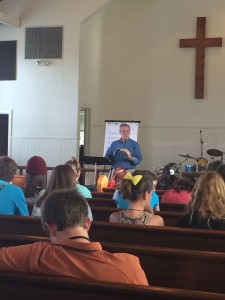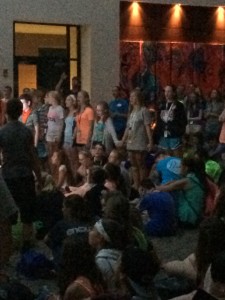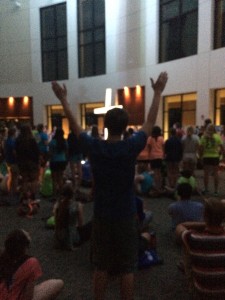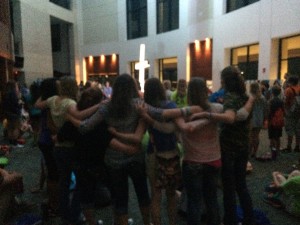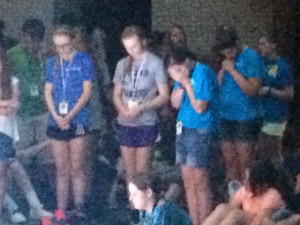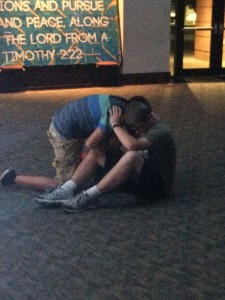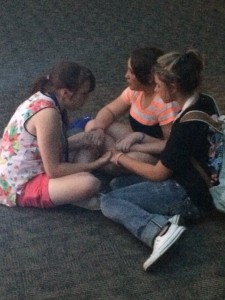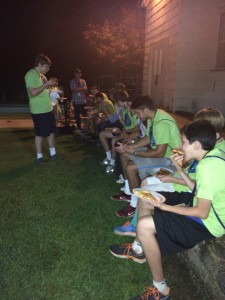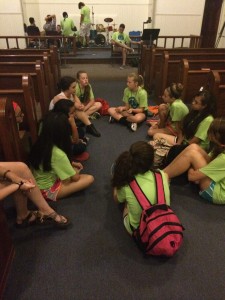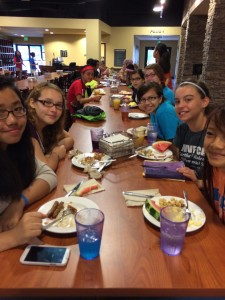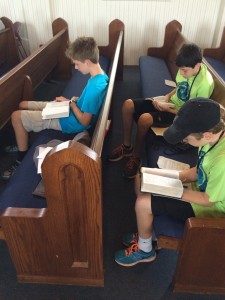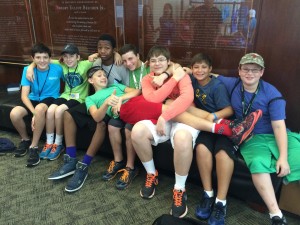Re: Verse reading–Proverbs 17:17; 1 John 4:7-21 (day one)
“This is love, not that we loved God, but that He loved us and sent His son to be an atoning sacrifice for our sins. Dear friends, since God so loved us, we also ought to love one another.” (1 John 4:10-11) When all is said and done, the one thing that we will either regret or treasure is love. “If I have not love, I am nothing” said Paul in 1 Corinthians 13. Lesson learned by experience. Paul spent years being “right” with a hard heart. He found out (and John agreed) that truth without love is ungodly. With God, for God, at church, in the world, love is our main task and the standard by which the world identifies us. Did I love? Do I? Will I? Scripture defines it. Love is sacrifice made for the welfare of others. (v 10) The opposite of selfishness. The lesson and example of the cross. Brothers, love one another!
Category: Cross Training
Uncommon?
RE Verse reading–Acts 2:42-47; Romans 12:3-13 (day seven)
“They devoted themselves to the apostle’s teaching . . . the believers were together and had everything in common.” (Acts 2:42, 44) “An UNCOMMON love for God’s word and an ability to teach it.” That’s how the profile describes the Associate Pastor for Young Marrieds at FBCSA. It is a quality the search team is looking/praying for as the Lord leads us in this interview process. Ironic, isn’t it? Our scripture this week indicates that the will of Christ is for such a love to be VERY COMMON among the people of God. Koinos is Greek for “common”. Koinoinia is Greek for those who “share life together, love the same thing, bear the same burden.” Is this uncommon in a selfish and “me-centered” world? Perhaps, but not for those who have experienced the power of Pentecost! I am looking forward to being with you in worship today. May the Lord us uncommon people in His normal way.
Humility and grace
RE Verse reading–Acts 2:42-47; Romans 12:3-13 (day six)
“For by the grace given to me I say to every one of you; do not think or yourself more highly than you ought, but rather think of yourself with sober judgment, in accordance with the measure of faith God has given you.” (Romans 12:3) Humility is a blessing. To the humble man and to his friends. “God is opposed to the proud, but gives grace to the humble.” (James 4:6) It is an important factor in the equation of Christian fellowship. Proud people compete. Humble people recognize the value of every member and make allowances for the needs of all to be met. They join a team and do so gladly. Paul was powerfully gifted as a preacher/missionary. Even so, he knew that the God’s grace gives each of us only “a measure” of the faith that is necessary for the full work of the church. With grace comes humility. In theory at least.
Here’s Why I Love Youth Camp
Re: Verse reading–Acts 2:42-47; Romans 12:3-13 (day five)
They were continually devoting themselves to the apostles’ teaching and to fellowship, to the breaking of bread and to prayer.
No Retirement
Re: Verse reading–Acts 2:42-47; Romans 12:3-13 (day four) We are one body in Christ…the church. Our scripture tells us that each of us has gifts, given to us by the grace of God. It also tells us that we are to use our gifts…to exercise them in the body. What is your gift or gifts? Are you using them for the good of the body? For the church to function to its full potential, each member must be at work. Working in the church is not an option. God places each member in the body to fulfill a specific task or tasks. Prophecy…service… teaching…exhorting… giving…leading…showing mercy…each of us must find our place to serve. Our scripture also tells us that our attitude when we serve is important. Love without hypocrisy, abhorrence of evil, brotherly love, honor, diligence, hope, perseverance, generosity, and prayerfulness…the Christian life is never static. It is always active. There is no retirement from serving the Lord or His church.
Together
Re: Verse reading–Acts 2:42-47; Romans 12:3-13 (Day Three)
“Honor one another above yourselves.” Part of what it means to be human is to live with others. Dietrich Bonhoeffer knew well the necessity of fellowship, and he warned, “Let him who is not in community beware of being alone.” The most dreaded punishment devised by the human mind is solitary confinement, for it is in isolation that we find no one to help us carry the burdens of the weight of our fallenness. It is never easy to live with others, but that’s not because fellowship is an optional component of our existence. Rather, it is because we are sinful. But it is when we live with others—working out conflict, revealing our motives, forgiving one another, learning from one another, confessing sin to each other—that we grow as Christ directs us to grow. There is no substitute.
Community
Re: Verse reading–Acts 2:42-47; Romans 12:3-13 (day two)
And day by day, attending the temple together and breaking bread in their homes, they received their food with glad and generous hearts, praising God and having favor with all the people. Acts 2:46-47
We were made for community. When we come together around a meal we create a community of sorts that is a picture of the body of Christ. We share our provisions, which nurtures everyone around us. We talk, laugh, and become closer through our fellowship. This picture can extend to our times of worship. One of the functions of corporate worship is to build community. When we come together we join our voices with the saints around us and are strengthened. As you come for worship next week consider getting to know someone you don’t currently know. If they came to your house, you would certainly learn their name, so do the same here. Sit in community with others, gain from the beautiful fellowship of singing, praying, and growing together.
A Jolly Good Fellow
Re: Verse reading–Acts 2:42-47; Romans 12:3-13 (day one)
“For he’s a jolly good fellow (repeat twice more), that nobody can deny.” It is a song we sing to recognize friendship. More than friendship, fellowship. Fellow comes from the same root word as follow. To follow the same commander (in the military sense), or the same Lord (in a religious sense) is to become a fellow to other members of your unit or church. Not something that happens automatically. Effort is involved. “They DEVOTED themselves to the apostle’s teaching and to fellowship.” (Acts 2:42) Probably means that they were careful to include, to learn names, to spend time together, to listen, to forgive, to “do life together”. Friendships require time and effort. Fellowship even more. Maybe we should add a song to our hymnal. It would remind us of this gift from God, this proof of the Spirit’s presence. “For he’s a jolly good fellow. . .” I look forward to seeing you on Sunday.
Super natural
Re: Verse reading–2 Chronicles 20:1-4, 13-15; Matthew 6:16-18; Acts 13:1-3 (day seven)
“He fasted forty days and forty nights.” (Matthew 4:2) “It was at this time that He went off to the mountain to pray, and He spent the whole night in prayer to God.” (Luke 6:12) “And He came to the disciples and found them sleeping.” (Matthew 26:40) God is supernatural. ABOVE nature in power and worth. Glorious and good and eternal. The ancients, therefore, understood that at important moments it is beneficial and wise to place His concerns ABOVE normal (and legitimate) human needs. Not standard practice, but acceptable under certain conditions. Needs like eating or sleeping were subordinated. Prayer ABOVE food and sleep. The importance of fasting needs to be recovered in our day. Remember the disciples in the garden? They wanted to support, but in their immaturity had not yet learned to seek the spiritual ABOVE the physical. Only Jesus can make us supernatural. It is still His desire to do so.
If my people will humble themselves. . .
Re: Verse reading–2 Chronicles 20:1-4, 13-15; Matthew 6:16-18; Acts 13:1-3 (day six)
“Jehoshaphat resolved to inquire of the Lord, and he proclaimed a fast for all Judah.” (2 Chronicles 20:3) The human heart is naturally proud. Self-centered. No instruction required. Big problem with God! Intimacy with Him (and help from Him) requires a “pride-ectomy”. Fasting can be helpful. Self-denial from a meal or a pleasure can be a strong signal to the human ego that someone/something of higher priority is present. Fasting temporarily puts human desires and demands below the pursuit of God on the ladder of priority. It humbles the constant craving and ceaseless demanding that so often shouts its way into soul control. The squeaky wheel . . . “If my people will humble themselves” is a familiar line of Scripture. What is often lacking is the practical understanding of the path toward this beneficial goal. Fasting may be a helpful place to start. How could you, today, say “no” to yourself in pursuit of God?

